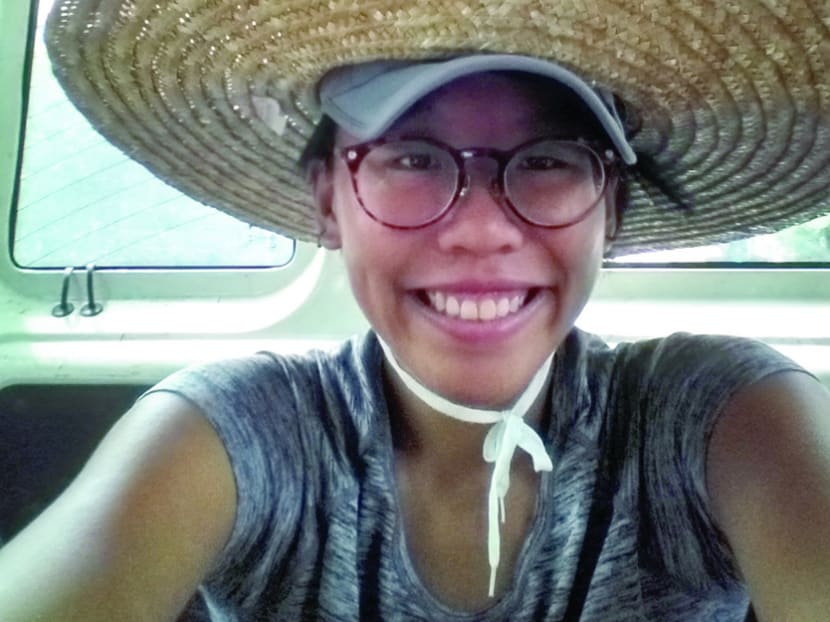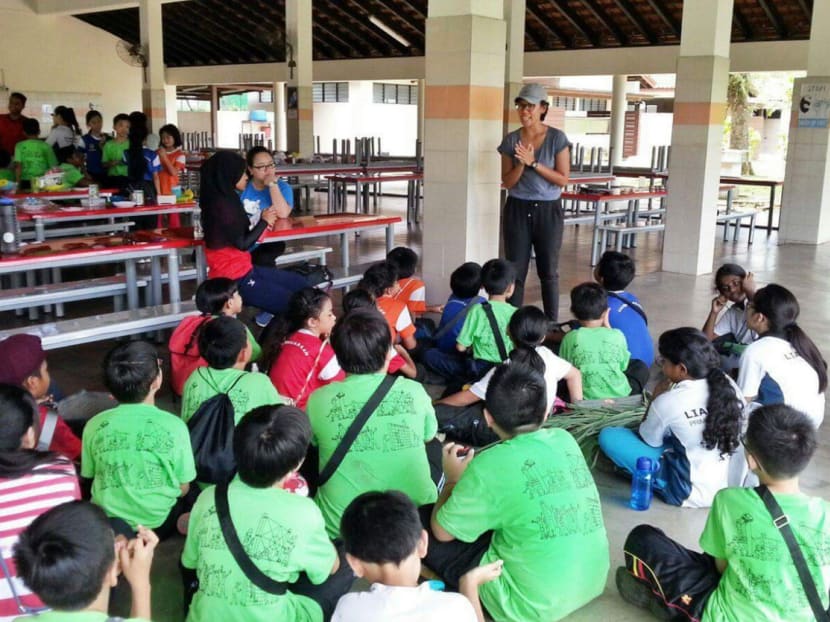What it is like being a 24-year-old female farmer in Singapore
Singapore — When most graduates in Singapore think about a career, we can bet our last dollar “farmer” is probably the furthest thing on their mind. But for Amanda Oh, 24, farming was exactly what she wanted when she graduated from Nanyang Technological University, where she majored in Chemical and Biomolecular Engineering.


Singapore — When most graduates in Singapore think about a career, we can bet our last dollar “farmer” is probably the furthest thing on their mind. But for Amanda Oh, 24, farming was exactly what she wanted when she graduated last year from Nanyang Technological University, where she majored in Chemical and Biomolecular Engineering.
“After graduation, I wanted a job that gets me excited to go to work, where I don’t have to work for the sake of working,” Oh explained. “After looking at what Edible Garden City does, it was clear that the company had something amazing to offer.”
Oh wrote to Edible Garden City’s founder, Bjorn Low, to express her interest, and she was promptly hired. She started work within two weeks after her final examinations, and is one of four females in Edible Garden City, which has a team of 12. Her parents were surprised and initially apprehensive about her choice, but have since come around.
“Like any parent, they are naturally worried that I have chosen such a tough profession,” she said. “Despite their initial resistance, they trust me and are fully supportive as they can see how much I enjoy my work.” Oh shares what else is par for the course as a young farmer in Singapore.
Q: What sparked off your interest in farming?
A: I see farming as a way that I can immerse myself in nature, to learn to be open to the wondrous creations around me. I think my training as an engineer offers me a different perspective as I approach farming. The most valuable lesson that I learnt from Bjorn is that urban farming IS possible, that growing your own food is not limited to people who have land or have green fingers. All it takes is the willingness to learn and just grow.
Q: What is the toughest part of the job? And the most satisfying?
A: I think it would be that there is always something more to know. If you ask me, I will tell you I know nothing because that is the truth. But that is also the most amazing part of the job. Every day I learn something new in my garden and it never gets boring. It is really satisfying when I can share what little I know with people, be they children, volunteers or visitors and they get excited to grow their own food or be in awe of nature.
Q: What do you enjoy most about the farm-to-beauty process?
A: It is incredible to watch my plants grow from seeds or seedlings and become products that people can actually benefit from given the amazing therapeutic properties that these plants offer. We work closely with Spa Esprit Group and I’m really stoked by Cynthia’s idea of Farm to Beauty. I believe that such collaborations have really pushed the boundaries of both farming and the creation of beauty products.
Q: Where did you pick up the skills for distilling the essence of the plants? And to know how to combine the ingredients to create a product?
A: I do not have any professional training in distillation or formulating products. But I am constantly reading up on different kinds of information to build my knowledge. I am also very privileged to be able to tap the brains of my colleagues or people who have the necessary know-how. Using what I know, I have to keep trying and experimenting and in the process, keep learning. For example, to create the aloe vera soothing gel, the chemist and I would discuss what he needs from me, and we will explore methods that allow us to obtain the best possible product.
Q: Why do you think it is important for young people to support local initiatives like Edible Garden or buy Farm to Beauty products?
A: It supports the idea that it is fully within our capabilities to know about and grow our food. Not only that, we can even look to ourselves to improve our wellness with products that we make with our own hands. As a farmer, I hope to keep growing in a way that is in harmony with nature, and to share with others the wonders of farming. To support urban farming here, I think it starts off by not viewing farming as something foreign, something beyond our urbanised lifestyle, but to see urban farming as a personal responsibility. Just start farming, be it one plant or a garden. Serene Lim








